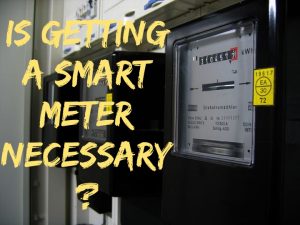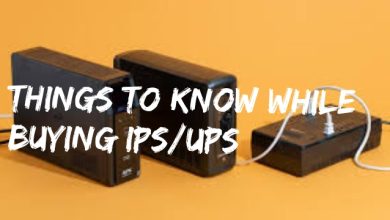Is Getting a Smart Meter Necessary?
And how would smart meters function, can you refuse one, and will they save you money as energy prices rise?
The drawbacks of purchasing smart meters that everyone needs to be aware of
People on fixed-price tariffs and households with smart meters were able to unwind while others rushed to submit their energy meter readings before August 1.
In the upcoming years, smart meters will be placed in millions of households. Energy providers will provide smart meters to every home by the end of 2025 as part of a nationwide rollout, but this move has generated intense controversy.
To enable suppliers to charge more for electricity during periods of high demand and less during periods of low demand, the government is trying to alter how the devices operate. Currently, customers must “opt in” to receive half-hourly use information from smart meters.
By altering the regulations, Ofgem will make this frequency periodic changes the default. Customers will need to “opt out” if they do not want to share their data. The industry has been instructed by the regulator to adopt the adjustments by next year.
Switching gas and electricity providers may become more difficult as a result of smart meters.
Smart meter early adopters who later wanted to transfer electricity providers experiences a rude shock. Since your usage data is sent to your energy provider over a new national communications network, some “first generation” smart meters installed in homes are currently incompatible with it.
When customers move suppliers, meters not linked to this system may become “dumb,” meaning their new smart meters are no better than the conventional ones.
Customers would still be required to manually report readings, which can be more challenging with a “smart-meter-turned-dumb” than a conventional meter.
Although these faults shouldn’t harm new users of smart meters, they do show the difficulties the implementation has faced.
To address the issue, these meters are being added to a nationwide network. In addition, after the meters were added to the network, several in-home devices that showed a client how much energy they were using stopped functioning.
After the British government and mobile phone companies announced plans to phase out 2G and 3G mobile networks by 2030, another issue is that the hardware linked with the devices will need to be changed.
You might pass on the top energy discounts.
Smart meter users typically do not have access to the greatest energy deals. Only one in six deals were accessible to owners of smart meters prior to the gas price issue. Given that the vast majority of homes are on their supplier’s default tariff and prices are capped, this is less of an issue currently.
But eventually, energy companies will roll out smart meter pricing that should lower household bills by altering the cost of electricity during the day.
With “time of use” tariffs, the cost of electricity decreases during periods of low demand and rises during periods of heavy usage. But at the moment, only Octopus Energy provides this kind of service.
Some contend that the claim that the smart meter might revolutionize our energy habits is unsupported by any solid evidence.
Data privacy worries are still very important.
A household’s data being communicated to a supplier raises potential privacy issues, which are the main concern of smart meter detractors in addition to the expense. Energy companies are insistent that they are the only ones who can see your data and that it cannot be shared with anybody else without your express consent.
The network operator, the DCC, cannot even access a customer’s power data, because it is encrypted before it gets to them.
However, according to a Privacy Charter created by the trade group Energy UK, organizations with which your supplier has contracts may be given access to the data gathered from your meter.
Additionally, it noted that under some conditions, your data could be made accessible to the authorities or other organizations, such as industry bodies engaged in preventing and detecting theft or fraud, in compliance with data protection law.
Smart meters do not retain your name, address, or bank information, even though they relay meter readings to your energy provider.
Your inquiries about smart meters are answered
How are smart meters operated?
A display gadget is included with smart meters to provide more precise tracking of energy usage. Since readings are automatically sent to providers, there is less chance that clients would pay too much or too little for gas and electricity.
Specialized tariffs are offered by some energy providers, and they change the price of electricity during the day. When energy prices are high, users of smart meters can use less of it, and when prices are low, they can use more.
However, tariffs function similarly to conventional meters for the majority of customers. Proponents of smart meters assert that by allowing households to view their energy usage, habits will change.
Can a smart meter be rejected?
Billpayers are not required to have smart meters installed, and they are free to do so indefinitely.
However, if a customer’s present meter is judged a safety danger or is no longer working properly, energy providers may require them to replace it.
Customers who already own a smart meter can request to have it taken away at any time. To recoup these expenses, providers may impose a levy on customers.
What amount of energy do I waste?
According to energy company Utilita, many people are unaware of how much it costs to leave items on standby. Several useless items are typically plugged in and turned on in every British home. Despite not utilizing their electrical devices for more than a year, four in ten people still have them on standby.
The Ten most energy-intensive products cost Britons £2 billion more annually to leave on standby than they would if they were turned off at the outlet. The company said that leaving a TV on standby wastes more than £400 million in electricity annually in Britain.
One household spends £10 on electricity for a TV, and £6 for a printer or scanner. Despite the relatively tiny amount per item, when many appliances are left on, the total soon rises.
Smart meters provide households with more precise information about how much energy their home is using. The devices, according to their proponents, give clients additional information about usage and ultimately result in financial and energy savings.


